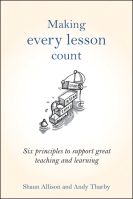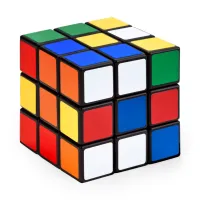This may seem like a strange time of year to be talking about revision – all the exams are over and we are looking forward to the end of term. However listening to a recent podcast on Craig Barton’s Tips for Teachers made me reflect on our use of the word. Julia Smith (@TessMaths) is an expert in teaching GCSE Resit maths students and she makes the point that “revision should start at day one of a course, not at the end”. She talks about revision being a “re-visioning of the maths”, meaning both trying the ensure that students see the maths differently but also by clever use of resources which help them to make connections and tie elements together. Julia is dealing with students who have already experienced “failure” in maths as they have not achieved the grade 4 in Year 11 that is required for them to drop the subject. They are often the same students who struggle to remember the basics as soon as they leave the classroom and Julia advises that we discuss revision with them all the time, going through how, what, when and where to revise, as well as who to revise with. She also suggests that sometimes gimmicks are good, and she introduces a project management tool called the Pomodoro technique to her students, which is basically using a plastic tomato kitchen timer to keep focus for short periods.
My go-to resource when discussing revision with students has to be https://www.learningscientists.org/ which has a great selection of useful resources and videos aimed at students. This great overview video starts with explaining why spaced practice is better (“the key is consistent, short study sessions over time”) and then goes on to summarise six science-based strategies. This will be a great way to start the year for both my form group and my classes in September. As well as videos the site also has some fabulous printable resources including posters, bookmarks and even stickers:
In maths we are using the bit of extra time that we have now to make Key Facts cards for all of our topics. The idea is that they can be used by teachers in a number of ways, for example for low stakes quizzes at the start of the lesson, or as flashcards that the students can make themselves and use at home. We have concentrated on facts and definitions rather than techniques or methods, as we find that some of our students are at a particular disadvantage because they are not fluent in these basics. I am hoping that I can drip-feed these to my Foundation class throughout the year so that they see their revision as manageable and ongoing, and combine using these with the other strategies.
At Durrington we also have designated sessions during Period 1 (our Form time) which our KS4 tutor groups use for revision. We have a different core subject focus each half term. Twice a week the students use the half hour in the morning to make flashcards from information provided and they then test themselves and their friends on the material. At the start of year 10 we use the material from the Learning Scientists website mentioned above to train the tutor groups on the best techniques for making flashcards and how to use them effectively, as well as explaining spaced practice and interleaving.
So even though exam season is at last well and truly over, revision will be the first thing we talk about at the start of next term with our students as it really makes sense to do so, and I am also preparing a pack for my year 10s to do over the Summer. As I said to them, if I was training for a marathon I would not take six weeks off in the middle, I’d at least make sure I did a quick run round the block every day!
Deb is a maths teacher at Durrington High School. She is also a Maths Research Associate for Durrington Research School and Assistant Maths Hub Lead for Sussex Maths Hub.
Find out more about the ‘Deep Dive Days’ being offered by the Durrington Research School next year.












